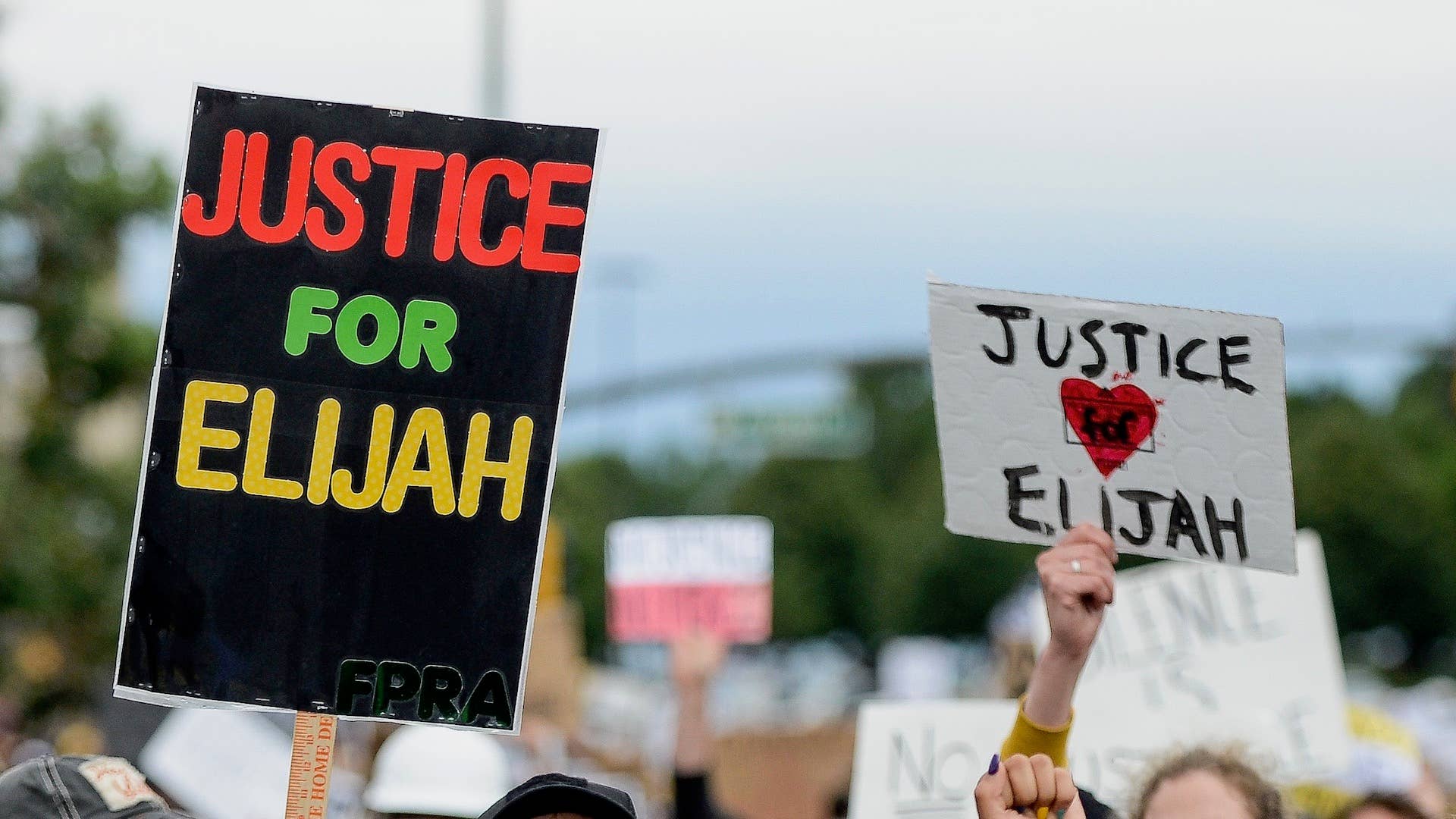
Colorado officials have launched another investigation into the death of Elijah McClain, a 23-year-old Black man who died after he was detained by police in summer 2019.
According to KDVR, the Colorado Department of Health and Environment is reexamining the role ketamine might've played in McClain's highly publicized death. The man was stopped by Aurora officers on Aug. 24 after someone had reported a "suspicious" individual walking down the street. Police said when they approached McClain he refused to stop walking and began resisting; he was subsequently put in a chokehold before a paramedic injected him with ketamine, a drug that has been used to sedate detainees.
"The department received numerous complaints, beginning on June 24, 2020, that provided additional information regarding a ketamine administration in August 2019," said Peter Myers, a spokesman for CDPHE's Health Facility Education and Quality Branch. "The department launched a complaint investigation which is currently ongoing."
KDVR reports CPDHE had previously said there wouldn't be "any additional investigation" centered on the use of ketamine in McClain's case, as there "were no findings that would support an action against the provider’s certificate."
After officers placed McClain in handcuffs, a paramedic had reportedly injected him with 500 mg of ketamine because he had shown signs of "excited delirium." He went into cardiac arrest while being transported to the hospital, where he was declared brain dead three days later. He was taken off life support on Aug. 30, and his autopsy was inconclusive.
Dr. Ebony Jade Hilton, an anesthesiologist at the University of Virginia, is among the health experts who have said the ketamine dose given McClain was dangerously excessive.
"In this instance, I don’t see the necessity of using a potent agent at that high of a dose," she told CBS4. "Never have I ever used 500 mg of ketamine to do so. For sedation level, 250 mg is on the high end and he got twice that in one shot."
The use of ketamine during police arrests and detainments was brought up during Tuesday's House Judiciary Committee hearing. Rep. Karen Bass (D-Calif.) pressed Attorney General William Barr about the McClain case and whether he knew how frequently law enforcement used ketamine to subdue civilians. Barr claimed he was unfamiliar with the case and said he had not reviewed the use of ketamine as a police tactic.

